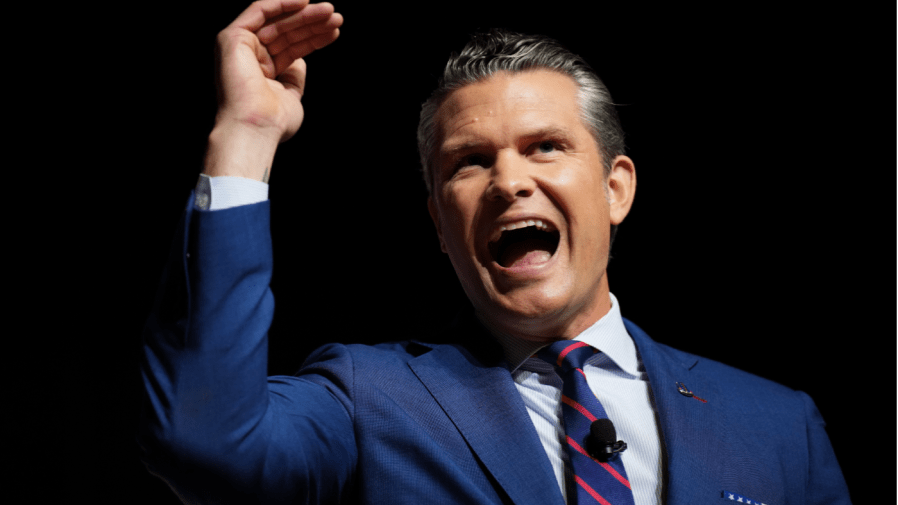Bad taste is becoming an American crime

While Oscar Wilde, the famous Irish wit and writer never said this, he easily could have made this one of his bon mots: The only crime worthy of the death penalty is bad taste. Two events last week in the U.S. underscored the relevance of this notion of why bad taste must be treated so harshly.
The first was the 45th playing of the Ryder Cup between the best U.S. and European golfers at the famous public Black Course at Bethpage, Long Island.
The second was the gathering of over 800 generals, admirals and senior enlisted personnel at the Marine Base, Quantico, Virginia ordered by Secretary of Defense Pete Hegseth and to which the president was invited to attend.
At both, bad taste was the theme.
At Bethpage, the outrageous behavior of too many Americans was in evidence. The competitions displayed some of the greatest golf ever displayed.
In last Saturday’s better ball competition, for example, in which the best score per hole per team counts, the British were 11 under, winning three more holes than the Americans, closing the U.S. out 3 and 2.
On Sunday, the U.S. was trailing the European team 11.5 to 4.5 with Europe requiring 14 points to retain the cup. The U.S. almost won, losing 14.5 to 13.5. But the comeback was extraordinary, and while losing the cup, the U.S played magnificently. The golf was the best I had ever seen.
Unlike with other sports, golf spectators are expected to behave accordingly and practice good sportsmanship. Golf is a gentleman’s sport in which players are expected to self-police and call penalty shots on themselves when a mistake is made. Civility is crucial. After each match, players removed their caps and shook each others’ hands.
But the crowds were far from civil, and too many had too much to drink. This was not the first Ryder Cup in which the opposing team was heckled and even booed. It was the magnitude of the discourtesies.
The wife of Northern Irish golfer and world number two Rory McIlroy had beer thrown at her. This was more than an embarrassment to the match, the quality of play and the intent of the Ryder Cup. These fans, however, exulted in such bad taste.
That sadly is a reflection of the state of American society today and the base nature of the substandard levels of civil conduct that have spilled over into virtually every sector, especially the government. Both political parties despise and hate the other, as President Trump declared after Charlie Kirk’s funeral that he hated his enemies.
As for summoning the nation’s most senior military leaders for a lecture by a former Army first lieutenant on a warrior ethos, grooming and weight standards — followed by an inchoate tirade by the commander-in-chief, who demeaned Joe Biden to the point of criticizing his signature — no former president would have considered such a performance of monumental poor taste.
One wonders after calling out unkempt and fat admirals and generals if Hegseth was completely tone deaf in understanding that he was criticizing his boss, the president.
Trump began his ramblings by remarking how silent the audience was. His demeanor and presentation of whatever his speech could be called was flat. And instead of walking among the senior officers, he abruptly left, leaving Hegseth in the lurch.
Now, of course, these displays of exceedingly bad taste are not crimes and are not punishable. Perhaps they should be, as they are insights into the health, or in this case, the ill health, of society. A number of flag officers likely thought, “What am I doing here? What planet is this?”
Unfortunately, displays of American bad taste are too common. And nowhere is there any indication of this changing
Harlan Ullman, Ph.D., is UPI’s Arnaud deBorchgrave Distinguished Columnist, a senior advisor at the Atlantic Council, the chairman of two private companies and the principal author of the doctrine of shock and awe. He and former United Kingdom Defense Chief David Richards are the authors of a forthcoming book on preventing strategic catastrophe.